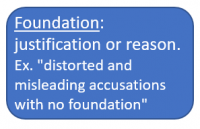Reviewing Factual Findings that Support a Legal Conclusion (of Eligibility)
Patent – Patently-O 2017-08-17
 The Federal Circuit has denied Prism Tech‘s petition for en banc rehearing on the question of deference to district court factual-findings that underlay a decision on patent eligibility. Prism had raised the following question:
The Federal Circuit has denied Prism Tech‘s petition for en banc rehearing on the question of deference to district court factual-findings that underlay a decision on patent eligibility. Prism had raised the following question:
This case warrants en banc review because it involves the precedent-setting question of whether this Court should apply a clear error standard of review to a district court’s underlying factual findings regarding patent eligibility under 35 U.S.C. § 101.
In this case, the District Court found the Asserted Claims patent eligible under § 101 and made several factual findings in support thereof. On appeal, the Panel characterized patent eligibility under § 101 purely as an issue of law and applied a de novo standard of review to both the legal issue of patent eligibility and the District Court’s underlying factual determinations. The Panel should have granted deference to the District Court’s factual findings. Failing to do so was inconsistent with precedent of the Supreme Court and this Court that grants deference to subsidiary factual determinations made by district courts in deciding similar questions of law—namely, Teva Pharm. USA, Inc. v. Sandoz, Inc., 135 S. Ct. 831 (2015) (Federal Circuit must review for clear error district court’s subsidiary factual findings regarding claim construction); Mintz v. Dietz & Watson, Inc., 679 F.3d 1372 (Fed. Cir. 2012) (Federal Circuit must review for clear error district court determinations on factual inquiries underlying the obviousness analysis); Alfred E. Mann Found. for Sci. Research v. Cochlear Corp., 841 F.3d 1334, 1341 (Fed. Cir. 2016) (Federal Circuit must review for clear error district court’s subsidiary factual findings regarding indefiniteness).
PrismBrief. This issue will continue to percolate.
The court also recently denied a somewhat similar petition in GoDaddy.com v. RPost Communications. That losing patentee’s petition asked whether eligibility a proper invalidity defense even though it is not codified as a defense in 35 U.S.C. §282(b) and whether, at the summary judgment stage, must the district court weigh evidence underlying the eligibility question in the non-movant’s favor?
Finally, the court has also denied the petition in RecogniCorp v. Nintendo Co. That petition focused on the eligibility of patents relating to the encoding and decoding of data.